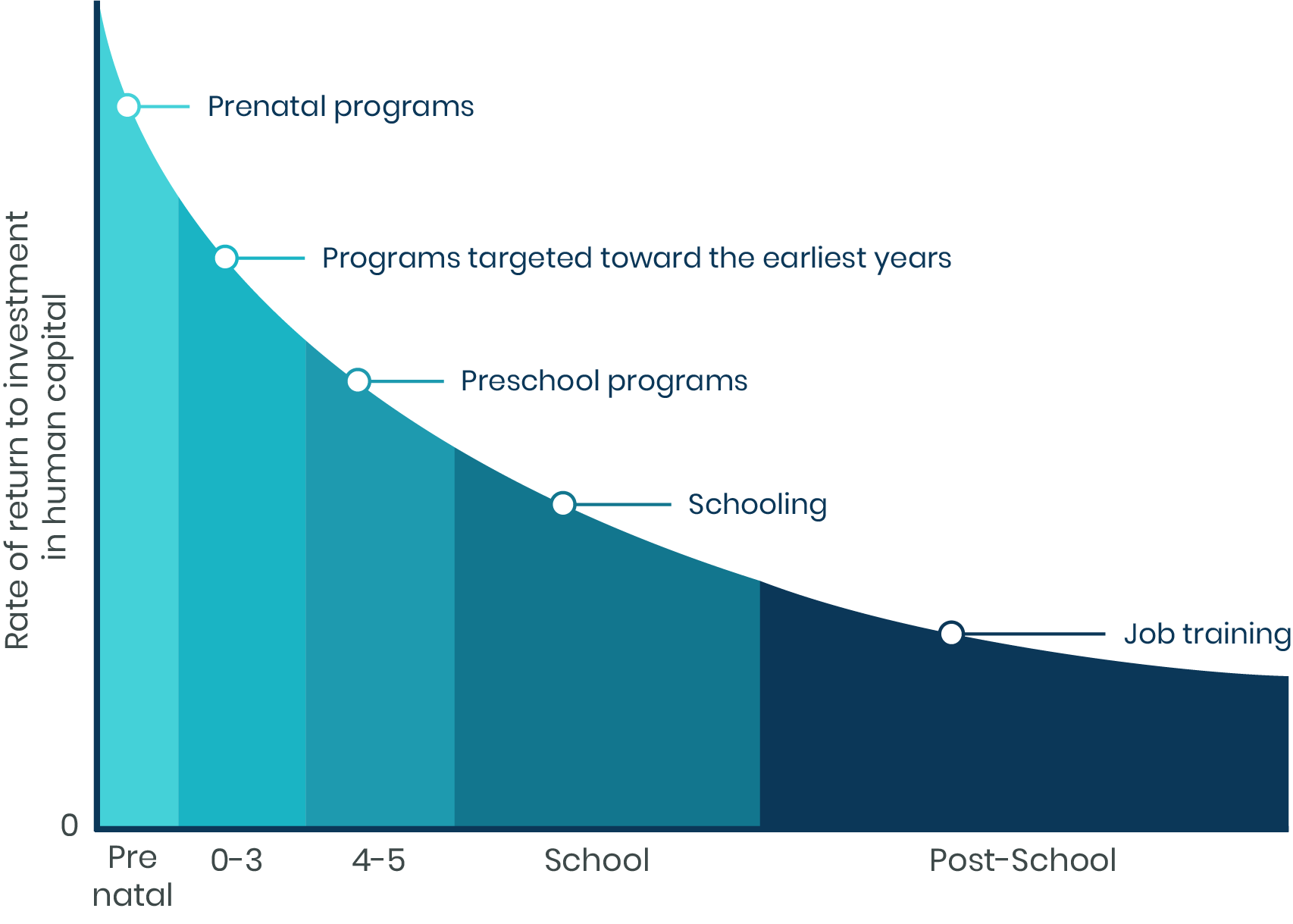Investing Early
The Burke Foundation focuses on the earliest years, because early investment lasts a lifetime.
“About half of the achievement gap we worry about at the end of high school is there before children walk through the kindergarten door.”
– Dr. W. Steven Barnett, Director of the National Institute for Early Education Research
Recent advances in the science of brain development offer a new opportunity to solve some of society’s most challenging problems. Research has identified the first five years of life as the most significant stage for human brain development, when pathways are formed for cognitive, linguistic, and behavioral functions. Reaching children during these early years with a continuum of support and high-quality early learning gives them the best chance of success in both school and life. The impact of these early investments yields cumulative benefits over a child’s life. This means that an investment during early childhood can help a child build the cognitive skills that will help reduce disparities in academic achievement, develop the social-emotional skills that support productivity in the workplace, and foster healthy physical development – all of which can decrease costs related to healthcare and social services and contribute to a more equitable society.
In 2018, the Burke Foundation embarked on a six-month field scan to better understand the state of research, funding, and practice in the early childhood field resulting in the Investing Early: Recommendations for Funding in Early Childhood report. As a direct result of our learnings, the Burke Foundation has committed $15 million over five years to fund an early childhood portfolio promoting healthy births and strong beginnings, healthy parent-child relationships, and high-quality early care and learning, serving vulnerable New Jersey children and their parents.
Our learnings build on three core areas identified by the Center on the Developing Child at Harvard that improve outcomes for children and families:
-
Support responsive relationships for children and adults
-
Strengthen core life skills
(e.g., social and emotional learning, cognitive skills, etc) -
Reduce sources of stress in the lives of children and families
In addition to giving children their strongest start, investing in quality early childhood care and education provides significant social and economic returns in the short and long-term.
-
Investments in early childhood have proven to be more effective in reducing or eliminating the achievement gap between children from higher-income and lower-income households than similar investments made later in life.
-
Birth-to-five interventions pay for themselves down the road. Providing families with high-quality childcare results in reduced social costs, stronger families, higher achievement, and a stronger national economy as parents are able to grow their income and children are set up to be successful in school and later life.
-
The right combination of early health and learning services prevents later chronic disease and other adult health issues that are stresses on the healthcare system.
The Heckman Equation
The earlier the investment, the greater the return.

Source: James Heckman, Nobel Laureate in Economic Sciences in 2000
We are committed to advancing the most promising prenatal-to-five programs and policies to create and expand systems of support for New Jersey children and families.
